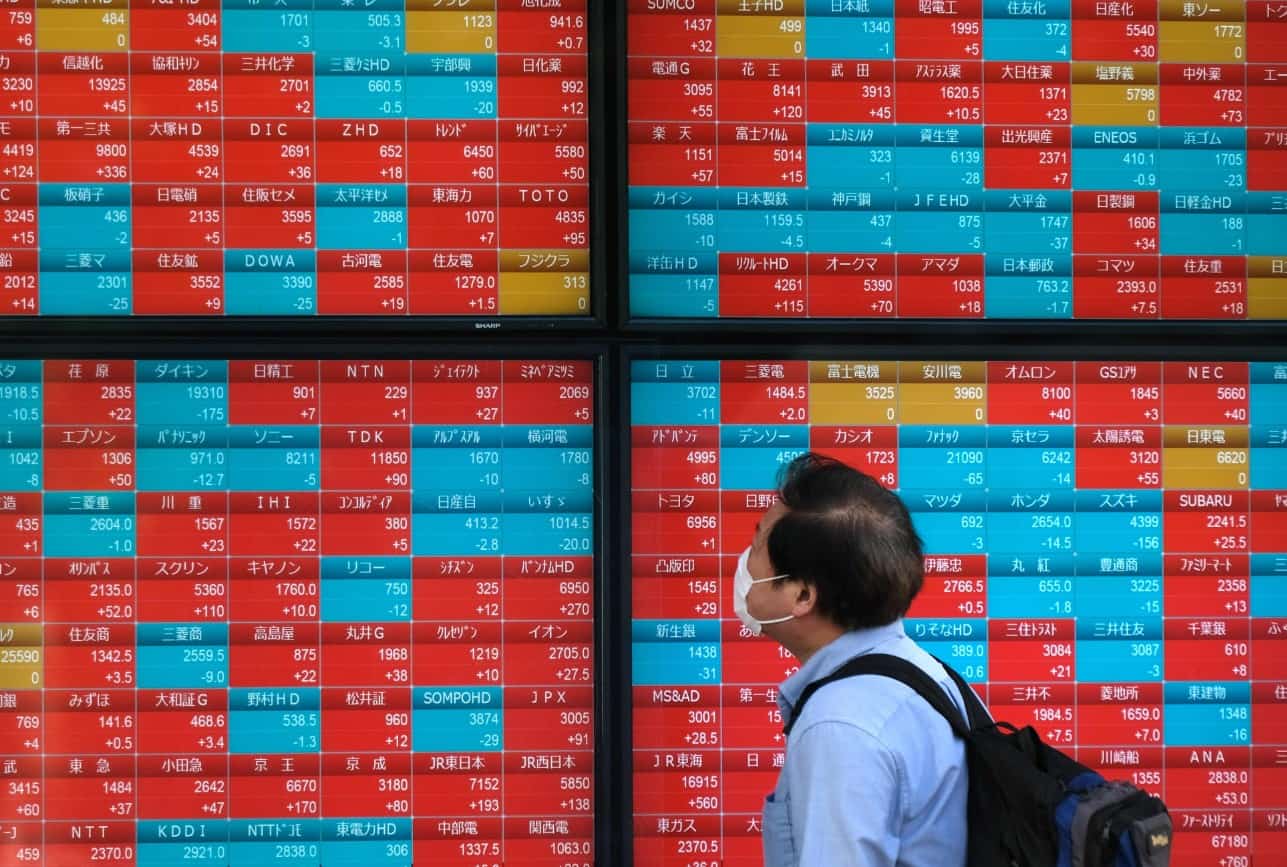SINGAPORE — Shares in the Asia-Pacific region were mostly higher on Thursday following the U.S. Federal Reserve’s decision to raise rates by 75 basis points to fight inflation, a move that was widely expected.
Among the major markets, only Hong Kong shares slipped. The benchmark Hang Seng index was 0.2% lower in the final hour of trade following a Thursday rate hike by the central bank.
Australia led gains, with the S&P/ASX 200 closing 0.97% higher at 6,889.7.
The Kospi in South Korea advanced 0.82% to 2,435.27, while the Kosdaq gained 0.33% to 798.32.
Mainland China markets rose. The Shanghai Composite gained 0.23% to 3,283.14 while the Shenzhen Component was up 0.23% at 12,428.72.
Japan’s Nikkei 225 was 0.36% higher at 27,815.48, while the Topix index inched up 0.16% to 1,948.85.
MSCI’s broadest index of Asia-Pacific shares outside of Japan rose 0.8%.
Fed hike
The rate hike takes the Fed funds rate to its highest level since December 2018.
Fed Chair Jerome Powell’s guidance about the central bank’s next moves boosted U.S. stocks overnight.
“As the stance of monetary policy tightens further, it likely will become appropriate to slow the pace of increases while we assess how our cumulative policy adjustments are affecting the economy and inflation,” he said.
With nearly two months before the next Fed meeting, during which there will be two job reports and two inflation reports, ING analysts pointed out in a note.
“A lot could happen in that time so it is unsurprising that the Fed is being somewhat vague in its forward guidance,” the analysts wrote.
“The immediate priority is getting a grip on inflation, but we think the Fed will switch to 50bp hikes at the September and November FOMC meetings with a final 25bp hike in December,” they added.
Expectations for a 50 basis point increase in September were at 66% on Thursday morning in Asia, according to the CME Group’s FedWatch Tool. The Fed said it is strongly committed to reducing inflation.
Powell also said he doesn’t think the U.S. is currently in a recession.
But Mark Kiesel, chief investment officer of global credit at Pimco, said the risks of recession have risen.
“Persistently high inflation has no question caused global central banks to have to pivot. And that has raised the recession risks,” he told CNBC’s “Street Signs Asia” on Thursday.
The Dow Jones Industrial Average rose 436.05 points, or around 1.4%, to 32,197.59. The S&P 500 advanced 2.62% to close at 4,023.61 and the Nasdaq Composite popped 4.06% to 12,032.42 a day after quarterly results from Alphabet and Microsoft.
In Asia, the Australian Bureau of Statistics released data showing that retail sales for June rose 0.2%. Economists polled by Reuters predicted that the report would show 0.5% growth, compared to 0.9% in May.
Thailand’s market is closed for a holiday Thursday.
Samsung’s second-quarter earnings were slightly improved from the “better than feared” earnings guidance early this month that led to a rally in chip stocks.
Operating profit rose to 14.1 trillion Korean won ($10.8 billion) compared to the 14 trillion Korean won estimated, while revenue increased to 77.2 trillion won.
Shares of the company were 0.16% higher at the close on Thursday.
Currencies and oil
The U.S. dollar index, which tracks the greenback against a basket of its peers, was at 106.268. It fell sharply after the Fed rate hike.
The Japanese yen strengthened to 135.45 per dollar, after weakening past the 137 level this week. The Australian dollar was stronger at $0.70 as the U.S. dollar weakened.
Oil futures rose on Thursday afternoon in Asia. U.S. crude gained 1.67% to $98.88 per barrel, while Brent crude advanced 1.18% to $107.88 per barrel.
— CNBC’s Jeff Cox, Tanaya Macheel, Carmen Reinicke and Arjun Kharpal contributed to this report.

